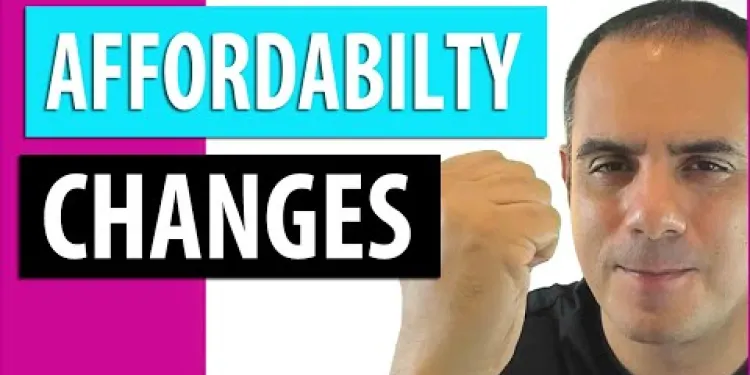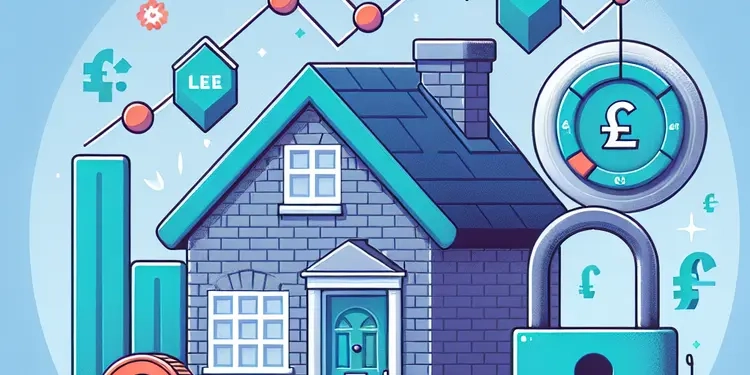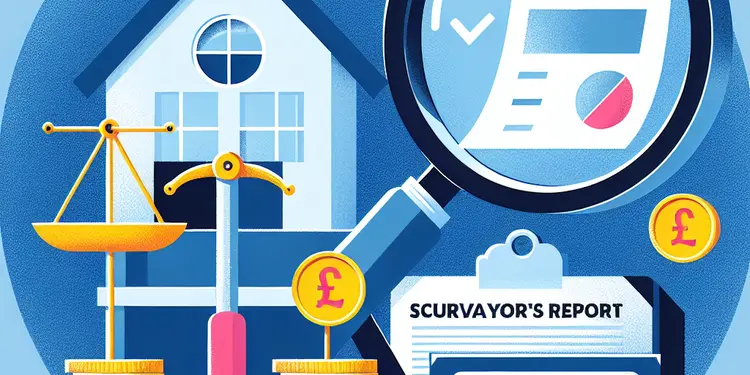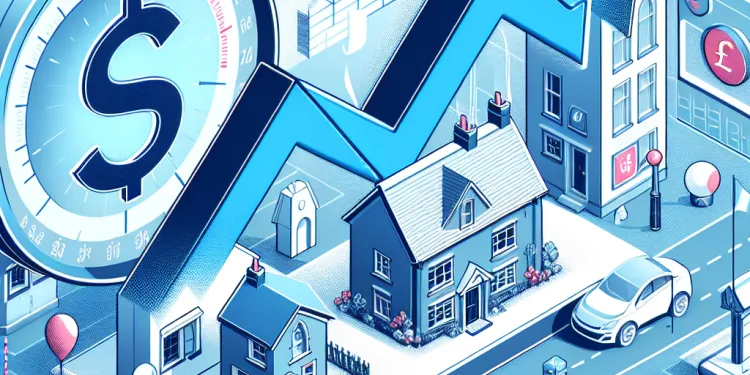Find Help
More Items From Ergsy search
-

UK Mortgage Rules Lenders Don't Talk About - Debt To Income Ratio
Relevance: 100%
-

Highest Income Multiple Mortgage Lenders Revealed - Good and Bad Points
Relevance: 60%
-

How much can I borrow for a mortgage UK - getting the Maximum Mortgage
Relevance: 49%
-

Turned down for a mortgage? Find out why and what to do
Relevance: 49%
-

Mortgage Turned Down In The UK - Why mortgage applications are declined
Relevance: 47%
-

Using 100% of your Second Income for a Mortgage Application
Relevance: 47%
-

Turned down for a mortgage? Find out why and what to do
Relevance: 47%
-

Getting the maximum mortgage in the UK
Relevance: 44%
-

5 Broker Exclusive Buy to Let Mortgage Lenders you need to know about as a Landlord
Relevance: 44%
-

Can Mortgage lenders work from my own Survey Valuation Report?
Relevance: 41%
-

HMO Mortgage Truths - how to get the best Finance option including Bridging Loan Criteria
Relevance: 38%
-

Uk Buy to Let for Older Clients - Mortgage Options Tips and Criteria
Relevance: 38%
-

What is an 'interest only' mortgage?
Relevance: 37%
-

The Ultimate Buy-To-Let Mortgage Breakdown
Relevance: 35%
-

First Time Buyer Buy to Let Finance Options. Lending Criteria on Mortgage and Bridging Finance
Relevance: 34%
-

Mortgage Overpayment and Flexible Features Explained
Relevance: 34%
-

What should I do if I can't afford my mortgage payments due to rising interest rates?
Relevance: 34%
-

Can Stamp Duty be included in a mortgage in the UK?
Relevance: 34%
-

Mortgage Regulator removes the need for further affordability stress tests
Relevance: 34%
-

Can I get a Buy to Let Mortgage With My 18 Year Old Son
Relevance: 34%
-

How do interest rate changes affect my mortgage payments?
Relevance: 31%
-

First Time Buyer Buy to Let Finance Options. Lending Criteria on Mortgage and Bridging Finance
Relevance: 31%
-

Mortgage on Inherited Property - How we can help you with the finance
Relevance: 31%
-

Can my lender change my interest rate without notification?
Relevance: 31%
-

Can I use the surveyor recommended by my mortgage provider?
Relevance: 31%
-

Selecting a Mortgage Broker - how they differ and what to watch out for
Relevance: 30%
-

What does it mean to "Fix My Mortgage Rate"?
Relevance: 30%
-

Will my fixed-rate mortgage payments change with interest rate fluctuations?
Relevance: 30%
-

Is there assistance available for rent or mortgage payments?
Relevance: 30%
-

What is the omega-6 to omega-3 ratio in diets?
Relevance: 29%
-

Is a mortgage valuation the same as a surveyor's report?
Relevance: 29%
-

How to Buy property with your children under the age of 18 and get Buy to Let Mortgage.
Relevance: 28%
-

What is a tracker mortgage and how does it respond to interest rate changes?
Relevance: 28%
-

Who is responsible for paying the deceased’s tax debts?
Relevance: 28%
-

Remortgage within 6 Months on the open market value Residential or Buy to Let Properties
Relevance: 27%
-

Is it possible to switch my mortgage type if interest rates become unfavourable?
Relevance: 27%
-

What is the role of an executor in handling tax debts?
Relevance: 25%
-

What Happens to Tax Debt After Death? (UK Laws)
Relevance: 25%
-

Should you Pay down your Residential Mortgage?
Relevance: 25%
-

Three Debt Free Methods in 2023 | Free Debt Calculator Tracker
Relevance: 24%
Understanding the Hidden Aspects of Debt-to-Income Ratio in UK Mortgage Rules
When applying for a mortgage in the UK, prospective homeowners often focus on interest rates and down payment requirements. However, an essential factor that is sometimes overlooked is the debt-to-income ratio (DTI), which plays a significant role in the lender's decision-making process. Although lenders may not always openly discuss it, understanding your debt-to-income ratio is crucial in securing a mortgage.
What is Debt-to-Income Ratio?
The debt-to-income ratio is a measure used by lenders to evaluate your financial health, specifically your ability to manage monthly payments and repay debts. It is calculated by dividing your total monthly debt obligations by your total monthly income, usually expressed as a percentage. For example, if your monthly debts total £1,000 and your monthly income is £3,000, your DTI ratio is approximately 33%. In the UK mortgage market, a lower DTI ratio generally indicates stronger financial stability and makes you a more attractive candidate for a mortgage. Most lenders prefer a DTI ratio of 45% or lower, though this can vary based on the lender and specific circumstances.
Why Lenders Emphasize Debt-to-Income Ratio
While lenders in the UK may focus heavily on your credit score and employment history, the DTI ratio offers a comprehensive snapshot of your ongoing financial commitments. This ratio helps lenders assess whether you have a manageable level of debt relative to your income. A high DTI can indicate that a borrower might struggle to meet additional financial obligations, including monthly mortgage payments, which would increase the lender's risk. Consequently, maintaining a healthy DTI ratio can enhance your mortgage application in the eyes of lenders.
How to Improve Your Debt-to-Income Ratio
Improving your DTI ratio requires either increasing your income or reducing your monthly debt payments. To lower your debts, consider paying off small loans or credit card balances strategically, starting with those with the highest interest rates. Alternatively, increasing your income through a raise, secondary employment, or passive income streams can also shift your DTI ratio in your favor. Before applying for a mortgage, it's important to review your financial situation and adjust your DTI ratio if necessary to improve your chances of approval.
Conclusion: Being Prepared for Mortgage Approval
While the debt-to-income ratio might not be the focal point of mortgage discussions, understanding its impact on your mortgage application is critical. By being proactive in managing your DTI ratio, you can put yourself in a stronger financial position, ultimately making it easier to secure the mortgage deal that best suits your needs. Understanding and improving this ratio not only increases your chances of mortgage approval but also contributes to your long-term financial stability and success in the UK housing market.
Understanding UK Mortgage Rules: Debt to Income Ratio
What is the Debt to Income Ratio?
The debt to income ratio (DTI) is a critical metric used by lenders to assess a borrower's ability to manage monthly payments and repay debts. It is the percentage of a borrower's gross monthly income that goes towards their monthly debt payments. Lenders often have a maximum DTI ratio they are willing to accept for mortgage approval.
Why Lenders Review Your Debt to Income Ratio
Lenders use the DTI ratio to determine the risk of lending to a borrower. A lower DTI suggests that the borrower has a good balance between debt and income, and thus is more likely to manage mortgage repayments effectively. In contrast, a high DTI indicates that a borrower may struggle with additional debt obligations.
The Common DTI Thresholds in the UK
While UK lenders may vary in their specific requirements, a commonly accepted maximum debt to income ratio is around 40-45% for traditional mortgages. Some lenders may allow up to 50% for buyers with strong credit histories or higher deposit amounts, but this is less frequent. Knowing these thresholds can help you position yourself better when applying for a mortgage.
Improving Your DTI Ratio
To improve your chances of mortgage approval, consider strategies to lower your DTI ratio. This can include paying down existing debts, increasing your income, or even negotiating lower monthly payments on loans or credit. An improved DTI ratio not only enhances your mortgage eligibility but also provides a buffer against potential financial challenges.
Conclusion
Understanding the debt to income ratio and how it influences mortgage lending decisions is vital for any prospective homeowner in the UK. Being proactive about managing your debts can significantly increase your chances of securing a favorable mortgage deal. Always seek to understand and, where possible, improve your DTI ratio to meet lender criteria effectively.
Understanding the Debt-to-Income Ratio in UK Mortgage Rules
When you want to buy a house in the UK, you might think a lot about interest rates and how much money you need to pay upfront. But there is something else important called the debt-to-income ratio (DTI). This is really important when banks decide if they will give you a loan. Even if banks do not talk about it a lot, knowing your DTI is very important to get a house loan.
What is Debt-to-Income Ratio?
The debt-to-income ratio helps banks see how you are doing with your money. It shows if you can pay your bills each month. You work it out by dividing the total amount you pay on debts each month by how much money you make in a month. It's shown as a percentage. For example, if you spend £1,000 a month on debts and make £3,000 a month, your DTI is 33%. In the UK, a lower DTI is usually better because it means you’re in good financial health and are more likely to get a loan. Most banks like it when your DTI is 45% or less, but this can change depending on the bank.
Why Do Lenders Care About Debt-to-Income Ratio?
Banks in the UK look at things like your credit score and job history a lot. But the DTI ratio also gives them a full picture of your money situation. This helps the bank see if you have too many bills to pay compared to your income. If your DTI is high, it might mean you will find it hard to pay more bills, like a house loan. This makes the bank worried. Keeping a good DTI ratio can help you look better to the bank when you apply for a house loan.
How to Make Your Debt-to-Income Ratio Better
To make your DTI ratio better, you could earn more money or pay off your monthly debts. To lower your debts, try paying off small loans or credit card debts first, especially the ones with high interest. You can also try to make more money by getting a raise, a second job, or finding other ways to make money. Before you apply for a house loan, check your money situation to see if you need to change your DTI ratio. This will help you have a better chance of getting a loan.
Conclusion: Be Ready for Mortgage Approval
The DTI ratio might not be the first thing you think of for a house loan, but it is very important to understand it. By working on your DTI ratio, you can make your money situation stronger. This will help you get the house loan that fits you best. Knowing and improving your DTI ratio can also help you get approved for a loan and be more secure with your money in the future. Consider using a calculator or app to track your expenses and help improve your financial situation.
Understanding UK Mortgage Rules: Debt to Income Ratio
What is the Debt to Income Ratio?
The debt to income ratio (DTI) shows how much of your money goes towards paying debts. It helps lenders decide if you can pay back a loan. The DTI is a percentage of your monthly income that you spend on debt. Lenders have a DTI limit for giving mortgages.
Why Lenders Review Your Debt to Income Ratio
Lenders check your DTI to see how risky it is to lend you money. A low DTI means you manage money well and can handle a new loan. A high DTI means you could have trouble paying more debts.
The Common DTI Thresholds in the UK
Many UK lenders prefer a DTI of 40-45% for loans. Some may go up to 50% if you have a good credit score or larger deposit. Knowing these numbers helps you when you apply for a mortgage.
Improving Your DTI Ratio
To improve your DTI, try paying off debts and increasing your income. You can also ask for lower monthly payments on loans. Better DTI makes you more likely to get a mortgage and helps you handle money problems.
Conclusion
Knowing how the DTI affects mortgage decisions is important if you want to buy a house in the UK. Managing your debts well can help you get a good mortgage. Always try to understand and improve your DTI to meet what lenders want.
Frequently Asked Questions
What is the debt-to-income (DTI) ratio and why is it important for a mortgage application in the UK?
The debt-to-income (DTI) ratio is a measure of your monthly debt payments in relation to your monthly income. In the UK, it is important because lenders use this ratio to assess whether you can manage your current debts and additional mortgage payments. It helps determine your borrowing capacity.
How is the debt-to-income ratio calculated for UK mortgage applications?
To calculate the DTI ratio, add up all your monthly debt payments, including loans, credit cards, and proposed mortgage payments, then divide by your gross monthly income. Multiply by 100 to get a percentage.
What is the ideal debt-to-income ratio for obtaining a mortgage in the UK?
While there isn't a fixed standard, most UK lenders prefer a DTI ratio below 40%. Ratios above this threshold may be considered risky, potentially affecting your mortgage approval.
Can having a high debt-to-income ratio affect my mortgage interest rates in the UK?
Yes, a higher DTI ratio may lead to higher interest rates if you are approved for a mortgage. Lenders perceive higher ratios as higher risk and may charge more to offset that risk.
Are all debts considered in the debt-to-income ratio for a UK mortgage?
Yes, most personal debts, including car loans, student loans, credit card payments, and existing mortgages, are considered when calculating your DTI ratio. Household expenses and utility bills typically are not considered in the DTI calculation.
Is rent considered part of my debt-to-income ratio when applying for a mortgage in the UK?
If you are currently renting, your rent payments are not included in the DTI ratio calculation for a mortgage. The focus is primarily on debts set to continue after you take on the mortgage.
Do lenders in the UK factor in future income potential when assessing my debt-to-income ratio for a mortgage?
Typically, lenders assess your current income rather than future potential. However, if you have a firm job offer or contract that indicates higher future income, it may be considered by some lenders when evaluating your borrowing capacity.
What steps can I take to improve my debt-to-income ratio before applying for a mortgage in the UK?
To improve your DTI ratio, you can pay down existing debts, avoid taking on new debt, and consider increasing your income. Creating a budget and sticking to it can also help manage and reduce your debt load over time.
Does a debt management plan affect my debt-to-income ratio for a UK mortgage application?
Yes, debts included in a debt management plan will be considered in your DTI ratio. Lenders may see active debt management plans as a sign of financial distress, potentially impacting your mortgage application.
How does self-employment affect the assessment of debt-to-income ratio for UK mortgages?
For the self-employed, lenders typically require a couple of years' worth of financial accounts to average out your income. This average is used to calculate the DTI ratio, which becomes more complex if your income fluctuates significantly.
Can I include bonus or commission income in my debt-to-income ratio calculation for a UK mortgage?
Yes, you can include bonuses and commission as part of your income. However, lenders usually require a history of these additional earnings over a few years to consider them stable and predictable for DTI calculations.
If I pay off a significant debt, how soon will it affect my DTI ratio for a mortgage application in the UK?
Paying off a significant debt can improve your DTI ratio fairly quickly. Once the debt is closed and updated on your credit report, lenders can see the improved ratio during the application review process.
Do lenders in the UK have flexibility with the maximum allowable debt-to-income ratio?
Some lenders may have flexibility, especially if you have compensating factors like a large deposit, excellent credit score, or stable income. However, going beyond their typical DTI threshold often requires more stringent conditions.
How might an existing mortgage affect a debt-to-income ratio calculation for a new mortgage application in the UK?
If you already have a mortgage, your monthly mortgage payments will be included in the DTI calculation. This can significantly affect your ratio, especially if the existing mortgage is a substantial portion of your income.
Can paying more than the monthly minimum on debts affect my debt-to-income ratio for a UK mortgage?
While lenders consider your required minimum payments for calculating DTI ratios, making additional payments on your debts can reduce the principal faster, potentially improving your ratio over time as your total debt decreases.
What is the debt-to-income (DTI) ratio and why is it important when applying for a home loan in the UK?
The debt-to-income (DTI) ratio is a way to see how much money you owe compared to how much money you earn.
It helps banks know if you can pay back a home loan.
Having a lower DTI ratio is better. It shows you have more money to handle your expenses.
When you want to buy a house in the UK, banks look at your DTI ratio before giving you a loan.
Some tools that can help you: - Use a calculator to add up your debts and income. - Ask a trusted adult to help explain these numbers to you.
The debt-to-income ratio tells you how much of your money goes to paying bills each month. In the UK, banks look at this to see if you can handle more debt, like a loan for a house. It helps them decide how much money they can lend you.
If reading is hard, you might use tools like Read Aloud apps or ask someone to read with you. Breaking text into smaller parts can also help make it easier to understand.
How do you work out the debt-to-income ratio for a UK mortgage?
To find out your debt-to-income ratio, do this:
- Add up all the money you must pay each month for debts. This includes things like loans and credit cards.
- Look at how much money you earn each month before tax.
- Divide the monthly debt payments by your monthly earnings.
- Change the result into a percentage.
Your debt-to-income ratio is the percentage you get!
Tip: You can use a calculator to help you with the math. It might make it easier!
To figure out your DTI ratio, follow these steps:
1. Add up all the money you pay each month for debts. This includes things like loans, credit cards, and the mortgage you want.
2. Next, find out how much money you earn each month before taxes. This is called your "gross monthly income."
3. Divide the total of your monthly debt payments by your gross monthly income.
4. Finally, multiply the result by 100. This gives you a number called a percentage.
Using a calculator can help you with the math. You can also ask someone you trust or use an online tool to help you calculate it.
What is the best debt-to-income ratio to get a home loan in the UK?
Your debt-to-income ratio shows how much money you owe compared to how much you earn. Lenders use this to see if you can afford a loan.
For a good chance of getting a home loan (mortgage) in the UK, try to keep your debt-to-income ratio low.
A good goal is to have your debt less than 36% of your income. This means if you earn £100, you should owe less than £36.
To help with this, try to pay off debts or earn more money before getting a loan.
Use a calculator to help you figure out your ratio. Ask a friend or adult for help if you need it.
Most banks in the UK like it when your DTI ratio is less than 40%. If it is more than 40%, they might think it is risky. This could make it harder for you to get a mortgage.
Can high debt affect my mortgage rates in the UK?
If you owe a lot of money, it might change the interest rates for your mortgage in the UK.
Here is what you need to know:
- Debt-to-income ratio: This is a way to see how much money you owe compared to how much you earn.
- High ratio: If you owe a lot compared to what you earn, it can make it harder to get good mortgage rates.
Here are some tools that can help:
- Calculator: Use a debt calculator to see your ratio.
- Budget plan: Make a plan to pay off your debts.
Yes, if you have a high DTI ratio, you might have to pay more interest on your mortgage. Lenders think a high DTI ratio is risky, so they might charge you more money to feel safe.
Do all debts count when getting a UK mortgage?
When you want a mortgage, the bank looks at your money and debts. They see if you can afford to pay them back.
Not all debts are added in the same way. Some debts matter more. It's good to get help to know which debts count.
If you're unsure, you can talk to someone like a money expert. Tools like calculators online can help too. They can show what debts matter.
Yes, when you owe money, like for a car or school, that's counted in your DTI ratio. Credit cards and home loans are also counted. But, things like light bills or rent usually are not counted.
Here are some tips to help understand DTI: - Use simple words. - Break big ideas into smaller steps. - Ask someone to explain it if you need help.When I apply for a mortgage in the UK, does my rent count as part of my income and debt?
Let's understand what "debt-to-income ratio" means. It helps banks see if you can pay back a loan.
If you pay rent, it is not counted as debt when you apply for a mortgage. This is good because it means banks focus on other debts and your income.
Supportive tools can help you understand this better. You can use:
- A calculator to see what you earn and owe each month.
- Ask an adult or a friend to help you with numbers.
- Look at easy guides about mortgages online.
These tips can make things clearer for you.
If you are renting a home right now, the money you pay for rent is not counted when a bank looks at your debt-to-income ratio (DTI). The bank mainly looks at bills you will need to keep paying after you get a new loan.
Do UK lenders think about future income when looking at my debt-to-income ratio for a mortgage?
When you try to get a mortgage, lenders look at your money. They check how much you earn and how much you owe. This is called the debt-to-income ratio.
Some lenders might also think about how much money you could earn in the future. This means they might want to know if you think your income will grow.
To help with understanding your money better, you can:
- Use a simple calculator to see how much money you make and owe.
- Ask someone you trust to help you understand your income and debts.
- Talk to a financial adviser who can explain things to you.
Usually, banks and lenders look at how much money you make now, not how much you might earn later. But if you have a new job offer or a contract that says you will make more money soon, some banks might consider this when deciding how much money they can lend you.
If reading is hard, try using a text-to-speech tool to listen instead. Highlighting words as you read can also help you understand better.
How can I make my debt-to-income ratio better before I ask for a mortgage in the UK?
If you want to get a mortgage, it's good to check your debt-to-income ratio. This is how much money you owe compared to how much you earn. Here are some simple steps to help you:
- Make a Budget: Write down what you earn and what you spend. Try to spend less than you earn.
- Pay Off Debts: Focus on paying off small debts first. Then, work on bigger ones.
- Earn More Money: See if you can get more hours at work or find a part-time job. Even little bits can help.
- Use Tools: Use a calculator or an app to keep track of your money and debts. This can help you see where your money goes.
With these steps, you can make your debt-to-income ratio better. This can help when you want to get a mortgage.
To make your DTI ratio better, you can do a few things:
1. **Pay Off Debt:** Try to pay back some of the money you owe. This will help make the number smaller.
2. **Don't Borrow More:** Try not to take any more loans or use a credit card too much.
3. **Make More Money:** If you can, try to find ways to earn more money.
4. **Use a Budget:** Make a plan for your money. Write down what you earn and what you spend. Stick to this plan. It will help you owe less money over time.
If you need help with budgeting, you can use apps like Mint or YNAB. These can help you see where your money is going.
Will a debt management plan change my debt-to-income ratio when I apply for a UK mortgage?
Yes, debts in a debt management plan count in your DTI ratio. Lenders might think having an active debt management plan means money problems. This could affect your mortgage application.
How does working for yourself change how banks check UK home loans?
If you work for yourself, it may change how banks look at your money when you want a home loan. Banks use something called "debt-to-income ratio" to see if you can pay back the loan.
Here is what you can do to make it easier:
- Keep clear records of your money, like how much you earn and spend.
- Ask an accountant to help you with your money papers.
- Use a calculator to see how much money comes in and goes out each month.
Getting help from a family member or friend might also make things clearer and simpler for you.
If you work for yourself, banks usually ask to see your money records for the last two years. They use these to figure out how much you usually make. This is important to find out your Debt-to-Income (DTI) ratio, which might be tricky if your money changes a lot.
Getting help from an accountant or using a money app can make this easier. They can help you keep track of your money records and show them to the bank.
Can I use extra money I earn, like bonuses or commission, when working out if I can afford a mortgage in the UK?
Yes, you can count bonuses and commission as part of your money you earn. But banks usually want to see that you’ve been getting these extra earnings for a few years. This helps them know your money is steady and reliable when they check if you can pay back a loan.
If I pay off a big debt, when will it change my DTI ratio for a mortgage in the UK?
DTI ratio stands for Debt-to-Income ratio. It shows how much of your money goes to paying debts every month.
When you pay off a big debt, your DTI gets better. This means you might be able to borrow more money.
Changes to your DTI can happen quickly, but it depends on your bank or lender.
Here are some tips to help:
- Talk to your bank or lender. They can explain what happens when you pay off debt.
- Use a calculator. It can show how paying off debt changes your DTI.
- Check your bank statements to see how your debts go down.
Paying off a big debt can help you make your DTI ratio better fast. When the debt is paid and your credit report is updated, lenders can see your better ratio when they look at your application.
Here are some tips to help you:
- Use a calculator to see how much debt you have.
- Ask an adult to help you plan to pay off your debt.
- Stay organized by writing down what you owe and what you've paid.
Can lenders in the UK change the rules for how much money you owe compared to what you earn?
Some banks might be flexible. They might help more if you have a big savings, a great credit score, or a steady job. But if you want to borrow more money than usual, you might need to meet tougher rules.
How does having a mortgage change your money balance for a new loan in the UK?
If you already have a mortgage, it is a loan you have to pay back for your house.
When you want another loan for a house, your money balance is important.
Money balance means how much you earn and how much you have to pay back.
The bank will look at all the loans you have to see if you can pay for another one.
Helpful tools: Use a calculator to add up all your monthly payments.
Ask someone you trust to explain or help with money if you need it.
If you have a loan for your house, your monthly payments for this loan are part of the DTI calculation. This can change your ratio a lot, especially if the loan is a big part of your income.
To help understand this better, you can:
- Use a calculator to see what your DTI is.
- Ask someone you trust to explain it to you.
Will paying more than the least amount on my debts change my debt-to-income ratio when I want a UK mortgage?
If you pay more than the least amount on what you owe, it might help when you want a mortgage in the UK. A mortgage is money you borrow to buy a house.
When you pay more, you owe less money later. This can make your debt smaller compared to the money you make, which is called your debt-to-income ratio. A smaller debt-to-income ratio is usually better when getting a mortgage.
If you need help understanding this, you can use a calculator to see how paying more changes what you owe. You can also ask someone you trust to explain it to you.
When banks look at how much money you owe, they think about the smallest payments you must make. If you pay more than these small amounts, you can make your debt go away faster. This can help you owe less money in the future.
Here are some things that might help you manage your money:
- Make a budget: Write down how much money you get and spend each month.
- Use a calculator: It can help you see how much money you need to pay off.
- Use apps: Some phone apps can help you track your money.
- Ask for help: Talk to someone you trust or a money expert if you're unsure.
Useful Links
Have you found an error, or do you have a link or some information you would like to share? Please let us know using the form below.
-->
This website offers general information and is not a substitute for professional advice.
Always seek guidance from qualified professionals.
If you have any medical concerns or need urgent help, contact a healthcare professional or emergency services immediately.
Some of this content was generated with AI assistance. We’ve done our best to keep it accurate, helpful, and human-friendly.
- Ergsy carfully checks the information in the videos we provide here.
- Videos shown by Youtube after a video has completed, have NOT been reviewed by ERGSY.
- To view, click the arrow in centre of video.
- Most of the videos you find here will have subtitles and/or closed captions available.
- You may need to turn these on, and choose your preferred language.
- Go to the video you'd like to watch.
- If closed captions (CC) are available, settings will be visible on the bottom right of the video player.
- To turn on Captions, click settings .
- To turn off Captions, click settings again.
More Items From Ergsy search
-

UK Mortgage Rules Lenders Don't Talk About - Debt To Income Ratio
Relevance: 100%
-

Highest Income Multiple Mortgage Lenders Revealed - Good and Bad Points
Relevance: 60%
-

How much can I borrow for a mortgage UK - getting the Maximum Mortgage
Relevance: 49%
-

Turned down for a mortgage? Find out why and what to do
Relevance: 49%
-

Mortgage Turned Down In The UK - Why mortgage applications are declined
Relevance: 47%
-

Using 100% of your Second Income for a Mortgage Application
Relevance: 47%
-

Turned down for a mortgage? Find out why and what to do
Relevance: 47%
-

Getting the maximum mortgage in the UK
Relevance: 44%
-

5 Broker Exclusive Buy to Let Mortgage Lenders you need to know about as a Landlord
Relevance: 44%
-

Can Mortgage lenders work from my own Survey Valuation Report?
Relevance: 41%
-

HMO Mortgage Truths - how to get the best Finance option including Bridging Loan Criteria
Relevance: 38%
-

Uk Buy to Let for Older Clients - Mortgage Options Tips and Criteria
Relevance: 38%
-

What is an 'interest only' mortgage?
Relevance: 37%
-

The Ultimate Buy-To-Let Mortgage Breakdown
Relevance: 35%
-

First Time Buyer Buy to Let Finance Options. Lending Criteria on Mortgage and Bridging Finance
Relevance: 34%
-

Mortgage Overpayment and Flexible Features Explained
Relevance: 34%
-

What should I do if I can't afford my mortgage payments due to rising interest rates?
Relevance: 34%
-

Can Stamp Duty be included in a mortgage in the UK?
Relevance: 34%
-

Mortgage Regulator removes the need for further affordability stress tests
Relevance: 34%
-

Can I get a Buy to Let Mortgage With My 18 Year Old Son
Relevance: 34%
-

How do interest rate changes affect my mortgage payments?
Relevance: 31%
-

First Time Buyer Buy to Let Finance Options. Lending Criteria on Mortgage and Bridging Finance
Relevance: 31%
-

Mortgage on Inherited Property - How we can help you with the finance
Relevance: 31%
-

Can my lender change my interest rate without notification?
Relevance: 31%
-

Can I use the surveyor recommended by my mortgage provider?
Relevance: 31%
-

Selecting a Mortgage Broker - how they differ and what to watch out for
Relevance: 30%
-

What does it mean to "Fix My Mortgage Rate"?
Relevance: 30%
-

Will my fixed-rate mortgage payments change with interest rate fluctuations?
Relevance: 30%
-

Is there assistance available for rent or mortgage payments?
Relevance: 30%
-

What is the omega-6 to omega-3 ratio in diets?
Relevance: 29%
-

Is a mortgage valuation the same as a surveyor's report?
Relevance: 29%
-

How to Buy property with your children under the age of 18 and get Buy to Let Mortgage.
Relevance: 28%
-

What is a tracker mortgage and how does it respond to interest rate changes?
Relevance: 28%
-

Who is responsible for paying the deceased’s tax debts?
Relevance: 28%
-

Remortgage within 6 Months on the open market value Residential or Buy to Let Properties
Relevance: 27%
-

Is it possible to switch my mortgage type if interest rates become unfavourable?
Relevance: 27%
-

What is the role of an executor in handling tax debts?
Relevance: 25%
-

What Happens to Tax Debt After Death? (UK Laws)
Relevance: 25%
-

Should you Pay down your Residential Mortgage?
Relevance: 25%
-

Three Debt Free Methods in 2023 | Free Debt Calculator Tracker
Relevance: 24%


